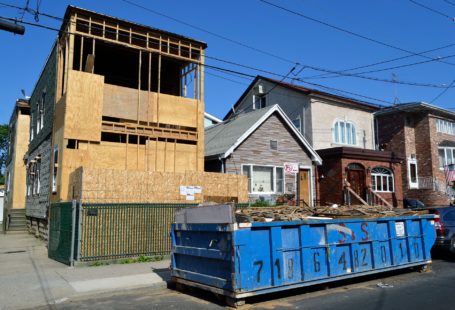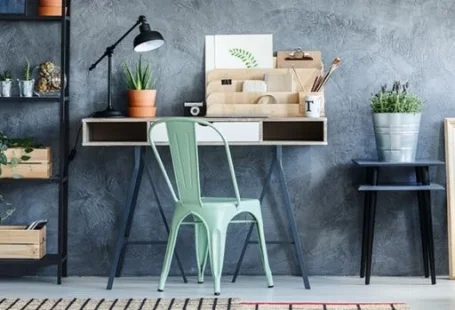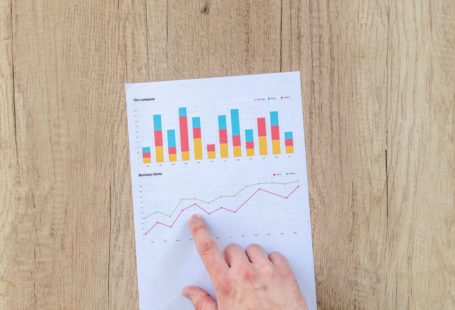When you’re ready to buy your first home, it can feel like there are a million things to think about. From mortgage options to different types of property, the world of buying your first home feels like a labyrinth of confusing choices. It doesn’t have to be that way though! When you boil it down, buying your first home is simply about picking the best place for you and your budget. Thinking about these considerations ahead of time, with the help of a property buying guide, will make that process easier.
Research Your Options
To start, you need to be clear on your budget and where you want to buy. Are you looking to buy in a city? A suburb? Or a small town? If you know the type of property you want, you can start to narrow down your options. If you’re still not sure, that’s okay! There are plenty of other things to consider. You should also create a budget and a timeline for your purchase. Even if you’re close to ready to buy, you might want to hold off a bit if the market is particularly hot. This will give you time to save up a bigger deposit so you can make a stronger offer.
Always follow your process and checklist before buying a new property, even when everything looks good.
Decide On A Location
This is likely the first decision you’ll make when it comes to your future home. Where you buy is just as important as what type of property you choose. Think about the things you like to do in your free time and how you get around. This will help you narrow down the type of neighbourhood you want to live in. Let’s say you love to spend time outdoors, you probably want to look for a place with easy access to trails, parks, and even lakes. If you like to go hiking and camping, you’re probably not going to be happy living in the middle of the city. Now, you can’t judge a neighbourhood just on these factors alone, but they are good places to start.
Know Your Credit
Your credit is one of the biggest factors that lenders will take into consideration when they’re deciding whether or not to lend you money. It’s not uncommon for lenders to check your credit report before approving a mortgage. Having good credit can make the process easier. Bad credit, on the other hand, can make it harder to get approved for a mortgage. There are a few different ways you can start improving your credit before you apply for a mortgage. One option is to apply for a credit card. This might sound counterintuitive, but credit cards are a great way to build credit. The key is paying them off each month. If you can keep your balance low, you’ll start to see positive changes on your credit report in a few months.
Decide How Much You Can Spend
Buying property doesn’t happen overnight. You have to be prepared for the process to take some time. You might also have to put money down on a down payment. This is an amount that you pay upfront to help cover the cost of the loan. The bigger your down payment, the better. Lenders will see this as a sign that you’re serious about repaying the loan. Down payments vary by lender and type of property. You might be required to put down as little as 5% on a condo, but you might need to put down as much as 20% on a single-family home. Be sure to check with your lender before making a decision on how much you have to put down.
Estimate Renovations and Upgrades
Another thing to keep in mind is that buying a house might require some renovations and upgrades. This is especially true if you’re buying a fixer-upper. When you buy a property, you’re also buying the right to make changes to it. That said, you’ll want to make sure you estimate the cost of renovations and upgrades before you make an offer on a property. If you don’t have a clear idea of how much renovations will cost and how they’ll impact your budget, you could end up getting in over your head. You don’t want to get to the point where you can’t afford to make the necessary repairs.
What Type of Property?
Now, you can start to narrow down the type of property you want. Let’s say you’re ready to look at condos. When you’re looking at condos, there are a few things to keep in mind. First, condos come with a monthly fee called a HOA fee. This is a fee that covers things like landscaping, repairs, and sometimes even utilities. It’s usually a pretty small amount, but it’s something to keep in mind when you’re looking at condos. Second, condos have what’s called a COE (conditions of endearment). This is a document that spells out the terms and conditions of the condo. It’s important to read through the document and make sure everything is up to code before you sign on the dotted line.
Check Out The Area Before You Buy
Now that you’ve done your research, it’s time to start looking at different areas in person. This is a great way to get a feel for the area and see if it’s right for you. When you’re strolling around, try to focus on the following: – Crime rates – School districts – Traffic – Access to public transportation – Access to nearby jobs All of these things can help you decide if a neighbourhood is right for you. You can also check out different neighborhoods on websites like Zillow or Redfin. Make sure you get a feel for the different areas and even look at the data for nearby schools.
Summing It Up
Now that you’ve gone through all of the considerations you need to make before you buy your first home, you’re probably feeling a little overwhelmed. It’s okay! Buying your first home can be a stressful process. The key is to take it one step at a time. Once you understand your budget, start thinking about the type of property you want. Now that you’ve figured all of that out, it’s time to start shopping!






